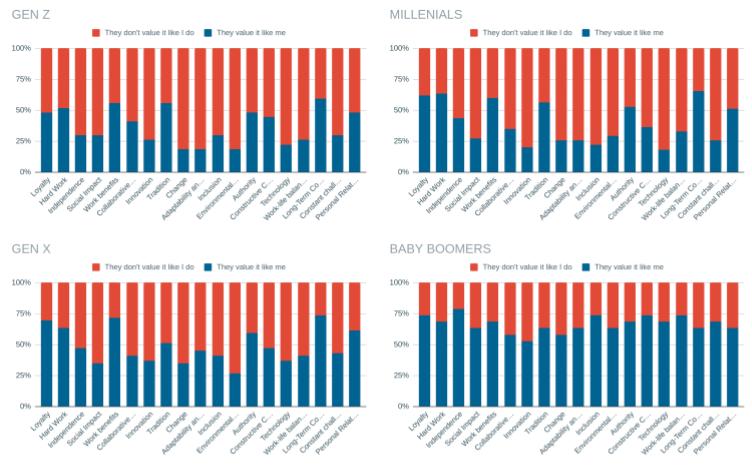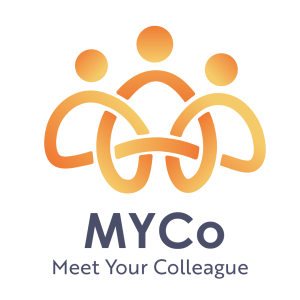27. Does Baby Boomers colleagues value these caracteristics as much as you do?

This question investigates participants’ perceptions of the importance attached by Baby Boomers colleagues to a number of professional and personal characteristics. The objective is to assess the degree of alignment between the values of Baby Boomers and those of other generations, in order to better understand the dynamics of intergenerational collaboration and inclusion.
The characteristics considered are:
Loyalty, Hard work, Autonomy, Social impact, Benefits, Collaboration orientation, Innovation, Tradition, Change, Adaptability and flexibility, Inclusion, Environmental impact, Authority, Constructive criticism/feedback, Technology, Work-life balance, Long-term commitment, Constant challenges, Personal relationships.
The analysis shows that Baby Boomers are perceived, both by themselves and by other generations, as bearers of traditional values: loyalty, authority, long-term commitment, and personal relationships. Younger generations (Gen Z and Millennials) see a significant gap regarding innovation, adaptability, inclusion, and technology. Gen X occupies an intermediate position, sharing many traditional values but showing somewhat more openness.
These results suggest that, in order to foster intergenerational collaboration, it is useful to value the strengths of Baby Boomers (stability, experience, relationships), while also promoting dialogue around innovation and flexibility to bridge perceived gaps and build a more inclusive and effective work environment.
Baby Boomers (self-perception):
They see themselves as strongly aligned with traditional values such as loyalty, authority, long-term commitment, personal relationships, and hard work. They attribute less importance to innovation, change, social impact, and technology.
Gen X:
Shares with Baby Boomers an appreciation for traditional values, but tends to see less emphasis on innovation, change, and inclusion.
Millennials:
Recognize in Baby Boomers a strong adherence to traditional values and authority, but perceive a gap when it comes to innovation, change, inclusion, and technology.
Gen Z:
Sees Baby Boomers as very oriented toward tradition, authority, and long-term commitment, but not very focused on innovation, change, inclusion, and technology.
This post is also available in: German Italian Polish Portuguese (Portugal)







